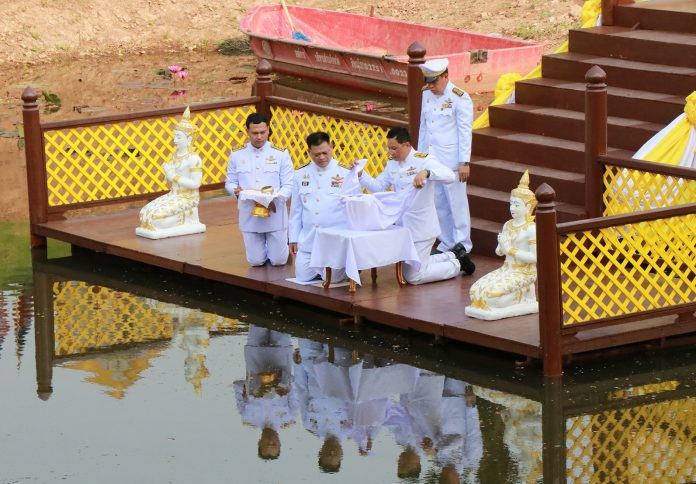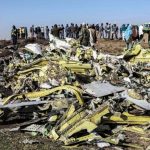Rehearsals to draw and transport sacred water for the May coronation ceremony took place on Thursday across the nation.
A rehearsal of the gathering of sacred water from 126 sources across 76 provinces and Bangkok took place today, with the real process to take place on Saturday. A consecration ceremony for the water will then take place on April 18 at Wat Suthat in Bangkok, before the water is transported to the Emerald Buddha Temple next to the grand palace the next day.
In Bangkok, governor Aswin Kwanmuang rehearsed transporting sacred water for ablution by car along a specific route to the grand palace.
According to a book entitled “The Royal Coronation Ceremony” published by the Culture Ministry in 2018, drawing sacred water for ablution is the first step in preparations for the royal coronation ceremony, which will take place from May 4-6.
Water from five rivers and four ponds will be collected on Saturday between 11.52am to 12.38am.
“[The water] is combined and blessed to be used as sacred water for ablution of the king in the Purification Ceremony and again in the Anointment Ceremony during the Royal Coronation Ceremony. According to the ancient Brahmanism textbook, the water for the Anointment Ceremony must come from the five main streams of South Asia, or from the country of India to be specific,” the book stated.
It however added that no record from the Sukhothai and Ayutthaya periods show that water was ever taken from India.
Holy water for the ceremony next month will come from the Chao Phraya, Bang Pakong, Pasak, Ratchaburi and Petchburi rivers and several other domestic sources. The river water will be combined with water from four sacred ponds in Suphan Buri province.
King Rama V, the great grandfather of the current king, visited India in 1872 and brought back with him water from the five main streams as prescribed in the Brahmanism textbook. He combined this with water from four sacred ponds in Suphan Buri province for his second coronation in 1873. This is why water from the four ponds in Suphan Buri continued to be used.




